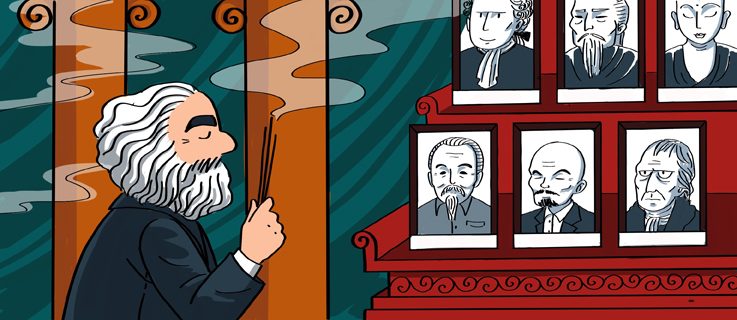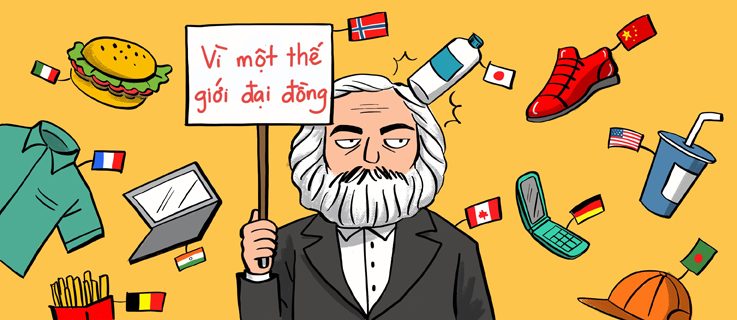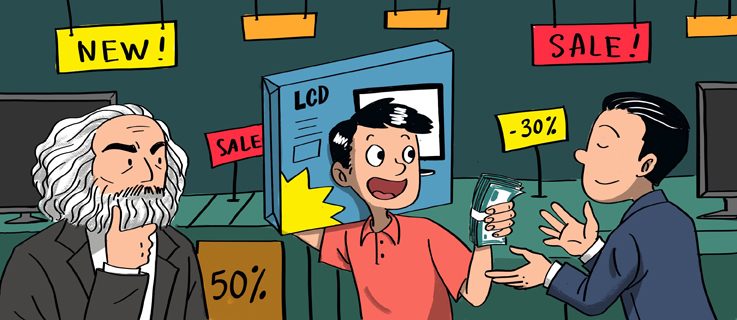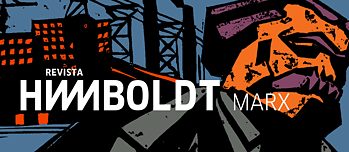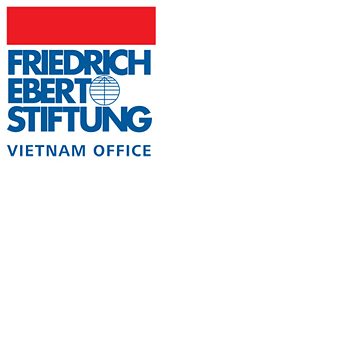We cordially invite you to a discussion about Karl Marx and Freedom
September, 21 starting at 5 pm
And to the film screening of the historical film The Boy Karl Marx
September, 21 starting at 7 pm
Please register for the discussion: vietnam-marx200@goethe.de
Four Topics on the dialogue
We will focus on the core tenets of his political philosophy and how it has been reflected in Vietnam’s diverse and contradictory reality in the past fifty years.
- Marx und Religion
- Marx and Mass Consumerism
- Marx and Globalisation
- Marx and the Liberation of the Human Being
Marx is one of the most influential Western thinkers and scientists. He was born 200 years ago in Germany. His life was marked by the effects of the French Revolution and the growing popularity among the bourgeoisie and broader population for liberation from aristocratic rule. In Germany this led to the 1848 revolution, which, however, did not achieve its goals.
1848 was also the watershed year when Karl Marx wrote the Communist Manifesto. It is considered to be the basis for the vision of a Communist society. 1859 appeared the first volume of DAS KAPITAL.
Karl Marx and his family, friends suffered censorship and political persecution throughout their lifetime. Marx had to flee with his wife and seven children into exile in France, Belgium and finally to England. In London he spent the last 11 years of his life († 1883)
To this day, the Communist Manifesto and DAS KAPITAL are central writings of with worldwide influence. In the West, these writings are still read today as well as his early writings, which preceded the Communist Manifesto. They are acknowledged as important legacies of his thinking.
Karl Marx continues the tradition of German philosophy, especially Hegel's philosophy of law (F. Hegel * 1770, † 1831) and the Jewish-Christian humanism. Marx studied law, history and philosophy. His writings are still relevant for social, economic and political sciences.
On the occasion of his 200th birthday (1818) the Goethe-Institut pays respect to Karl Marx. This year is also 170 anniversary of the the first publication of the Communist Manifesto. The Goethe-Institut honors recalls KarlMarx with a website: www.goethe.de/Vietnam/Marx200.
We adress four topics. We assume that they fit within the context of Vietnam and its commitment to socialism. With reference to Karl Marx writings we ask about
- globalization
- mass consumption
- freedom of religion
- freedom of political action
There are no prizes for winners to our call. Because we reject to pretend that we can award prizes for thinking about Marx. If we had received a great response, we would have asked two or three experts such as Jürgen Habermas (* 1929), Saskia Sassen (* 1947), William J. Talbott (* 1949), Slavoi Zizek (* 1949), Vladimir Tismaneanu ( * 1951), Heinz Bude (* 1954). But we did not get that far. This does not reduce the value of our effort to ask about the relevance of Marx or your willingness to offer thoughts about Marx and our time.
Here in Vietnam we are one of two European cultural institutes. The best we can do is to invite you to a dialogue. For this, there are no first and second prizes. Our event today is just a dialogue. There is no reward for thinking about Marx. We create an opportunity for exchange.
Thank you for accepting our invitation.
| Wilfried Eckstein - Director, Goethe-Institut Hanoi |
„Religion is the sigh of the oppressed creature, the heart of a heartless world, and the soul of soulless conditions. It is the opium of the people.“
„…the right to be religious in any way, to exercise one’s particular religious rites, is explicitly counted among human rights. The privilege of faith is a universal human right.
A central aspect of Marxian philosophy was his criticism of religion. However, his criticism was far more ambivalent than many later interpreted. For instance, Marx censured religions as a sort of drug that people use to avoid having to confront reality. On the other hand, he considered religion an important part of human cultures and its practice an indispensable human right. Can we detect this tension in modern Vietnam, as well? In the past 30 years, temples, pagodas, and churches have been rebuilt or newly constructed all over the country. Memorials to founder President Ho Chi Minh and his family have morphed from soviet-inspired monuments into temples and pagodas, strongly reminiscent of the way Confucians and Buddhists worship their saints and scholars. What effect does this new religious wave have on Vietnam? And does religious criticism still exist alongside this new tendency, and who are the voices behind it? How do we assess today’s diversity of religious and non-religious people in Vietnam?
We need new people.
The proletarians have nothing to lose but their chains. They have a world to win.
The worker becomes all the poorer the more wealth he produces, the more his production increases in power and size.
In 1986, Vietnam’s leadership passed far-reaching reforms. The economy was liberalized and decentralized, private enterprise was recognized, and foreign investors admitted. Currently, Vietnam is going through a second great wave of privatization of state-run corporations. And there is no doubt that since Doi Moi, the standard of living in Vietnam has improved significantly. Poverty rates have dwindled from 58.1 percent in 1993 to less than 12% in 2015. Economic growth rates in the past decade hovered between 7% and 10%. In metropolitan areas, huge shopping malls, increasing numbers of motorcycles and cars on the streets, fashionable clothing, expensive cell phones – and many obese children are indicators of increasing prosperity, perhaps even first signs of a consumer society. Would Karl Marx be happy about this development? In his early writings, he claimed that in a capitalist system, ever greater wealth would only benefit a small section of society, the capitalists. Workers, on the other hand, would be dehumanized and reduced to commodities. Later, Marx focused more on the fetishist nature of commodities. By that he meant that capitalism is based on creating illusions about the value of commodities. Both aspects have been influencing criticism of mass consumerism in Europe and North America to this day. Is this also the case in Vietnam? How do the people here view their new affluence and the now obvious differences between urban and rural areas?
Workers of the world, unite!
The bourgeoisie, historically, has played a most revolutionary part.
The need of a constantly expanding market for its products chases the bourgeoisie over the entire surface of the globe. It must nestle everywhere, settle everywhere, establish connections everywhere. The bourgeoisie has through its exploitation of the world market given a cosmopolitan character to production and consumption in every country.
Yet generally, the system of protective tariffs today tends to be conservative whereas the system of free trade is destructive. It erodes existing nationalities and escalates the disparity between Proletariat and Bourgeoisie. In a word, the system of free trade accelerates social revolution.
Karl Marx was one of the earliest critics of globalization. His analysis was not limited to nations that were undergoing industrialization at the time. As early as in the Communist Manifesto, he foresaw a global spread of industrial capitalism with all its advantages and disadvantages. On the one hand, he saw the enormous increase in production and economic productivity (the unleashing of productive forces, as he called it), and the gigantic increase of capital; on the other hand, he saw the destruction of the basic living foundations of millions, their dependence on investors and factory bosses, even the exploitation of entire continents. Marx’s ambivalent view has been influencing criticism of globalization to this day. Today, more demands have been added to it, including the Third World movement, protection of the environment, women’s rights, and social reform, all linked with left-wing political or religious ideas or demands to restore power to the national state. In Vietnam, globalization and low production costs have led to massive economic growth. Yet there are drawbacks, as well; environmental disasters such as the toxic gas scandal involving the Taiwanese Formosa Plastic Group; Vietnam’s dependence on international capital flow; government and investors facing uncertainties after the failure of the transnational TTP treaty to regulate trade relationships. What is the price of globalization and how do the Vietnamese cope with it? Which insights can we glean from Marx’s ideas for the current situation in Vietnam?
Each movement for liberation changes ist character as it transitions from utopia to reality.
Philosophers merely interpret the world differently, but what matters is to change it.
Marx’s philosophy called for humanity’s liberation through active involvement in its own history, whether it be through class warfare or by struggling against colonialist oppression. He was profoundly influenced by German Idealism and its schematic understanding of history. He initially developed his ideas for the states that were undergoing industrialization in his day, demanding that the underprivileged working masses liberate themselves from their oppressors, the capitalists. Yet non-European countries also moved more into the focus of Marx and of other European Marxists such as Rosa Luxemburg. When revolutionary movements emerged in Russia and Asia, the idea of class warfare evolved even further there. Thinkers like Lenin, Mao Tse-Tung and Ho Chi Minh shifted it away from the center of capitalism, Western Europe and North America, towards what was then considered the periphery. The idea was to bring down the capitalist world system from underdeveloped half-colonies like China and colonies like French-Indochina as oppressed peoples battled for a revolution that was national and social at the same time. This can be interpreted either as a refinement or as a fundamental reinterpretation of Marxian thought. How did this change take place in Vietnam? How did a European revolutionary shaped by German Idealism turn into a warrior for colonial liberation? How much Marx is left in the Vietnamese interpretation of his work? And what is the relation between social and national liberation today?
